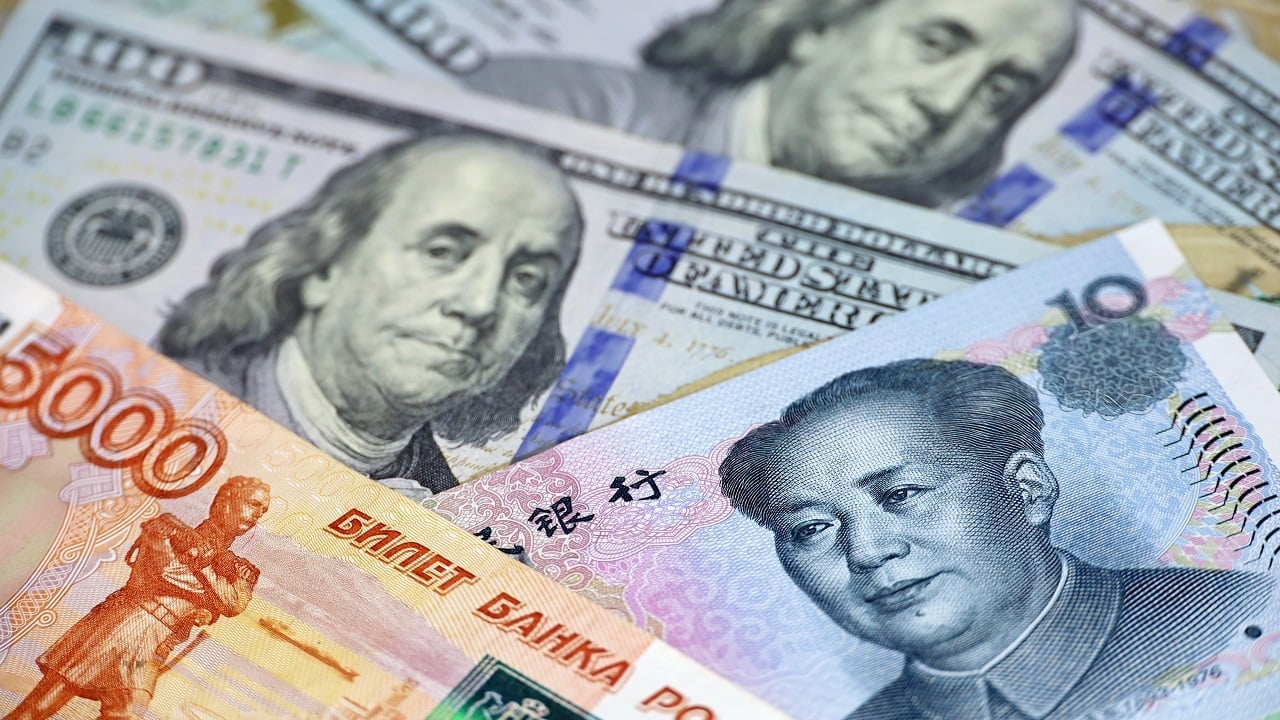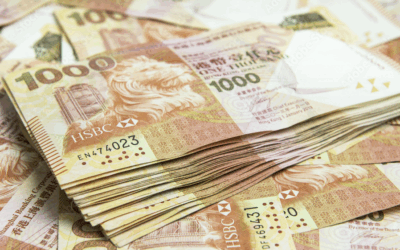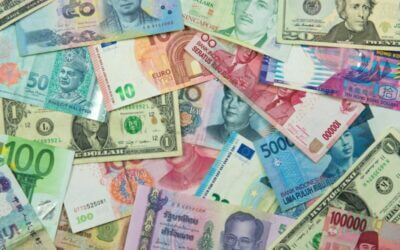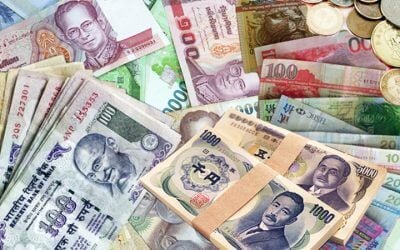Last updated May 3rd, 2025.
Recently, rumors of an impending Global Currency Reset (GCR) have been circulating on the internet. This has caused concern among investors and the general public alike.
Proponents of this theory argue that the world’s major currencies, particularly the US dollar, are on the verge of significant revaluation as part of a deliberate restructuring of the global financial system.
They claim this reset is necessary to address economic imbalances and create a more level playing field for developing nations.
However, it’s crucial to approach the theory of a global currency reset with a critical eye before drawing any firm conclusions. Let’s examine reality for a bit.
US Dollar’s Clear Dominance
The US dollar has maintained its status as the world’s primary reserve currency for nearly a century, thanks in part to the United States’ economic strength and the dollar’s former gold standard.
Despite facing various challenges over the years, the US has consistently worked to protect its currency’s value and global role. Many international contracts, including oil exports, are still being denominated in dollars.
This dominance has granted the US a unique advantage in managing its debt, as it can issue debt in its own currency, providing greater flexibility compared to emerging markets.
In fact, more than 85% of all foreign exchange transactions include the dollar as a pair! This is how widespread the USD’s usage is.
Economic Doomsday Predictions: A Historic Perspective
It’s important to note that predictions about the imminent collapse of the US economy are not a new phenomenon.
For the past five decades, various individuals and groups have been sounding the alarm about an impending economic catastrophe, which has yet to materialize.
Quite frankly: anyone who left USD denominated assets out of their portfolio the past few decades has missed out on returns.
While crises and recessions are an inevitable part of the economic cycle, the global financial system has weathered numerous storms, from oil shocks to world wars.
Proposed Models for Global Currency Reset
Several models have been suggested for a potential GCR, including the adoption of a new global reserve currency, the emergence of regional currencies, or a shift towards crypto.
Despite fair criticism over the USD, other fiat currencies have plenty of their own issues. The Euro and Yen, which are respectively the second and third most-used currencies in the world, have consistently underperformed the dollar.
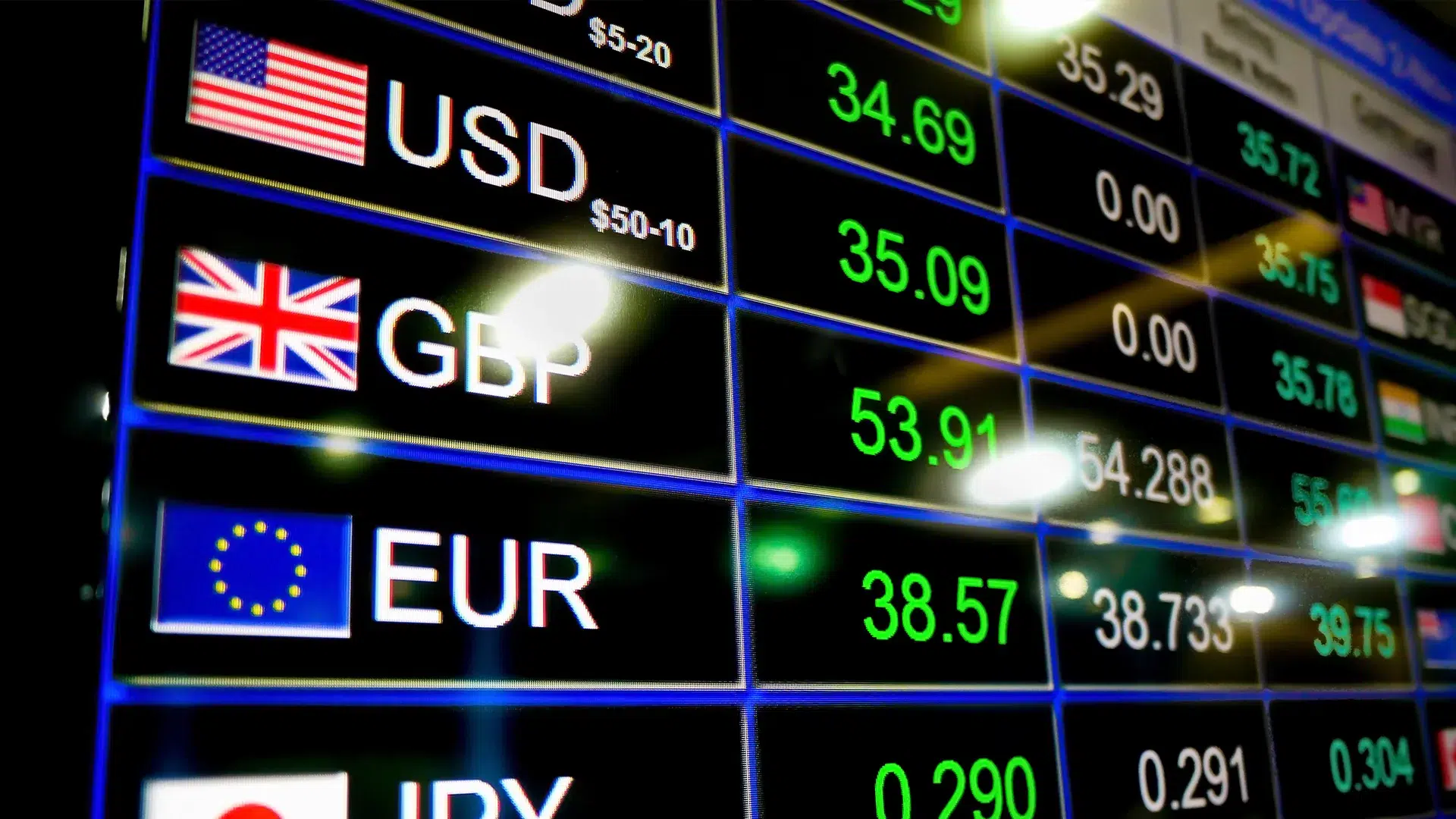
While the idea of GCR is still up in the air, it’s wise to start look into how to retain the stability of your current portfolio. Diversification is, and always, the key.
Indeed, the Euro depends on the continued collaboration of 27 different countries. And Japan is far more indebted than the United States.
This begs the question: crypto may be the future, but while we’re still using fiat currency, what’s the better alternative to the USD?
Other large currencies are in a worse position, and we can only hold so many Singapore dollars or Swiss francs!
It’s fair to say that investors should focus on diversifying their portfolios to mitigate risk, spreading their assets across different currencies and regions, instead of betting on a black swan event.
Emerging Markets: Promising Avenue for Diversification
One area that holds significant promise for investors seeking to diversify their portfolios is emerging markets, particularly those in Asia.
These economies are well-positioned for substantial growth in the coming decades, driven by factors such as favorable demographics, expanding middle classes, and increasing global trade.
By investing in these markets, investors tap into long-term growth potential while reducing their exposure to any single country or currency.
True, emerging markets often come with their own set of risks such as regulatory changes and currency fluctuation. Yet we cannot paint all developing nations with a broad stroke – some are less risky than others.
Diversify, Don’t Guess the Future
Diversification is a fundamental principle of sound investing, and it becomes even more crucial during times of economic uncertainty.
This approach helps to ensure that a portfolio is not overly dependent on the performance of any single investment or market.
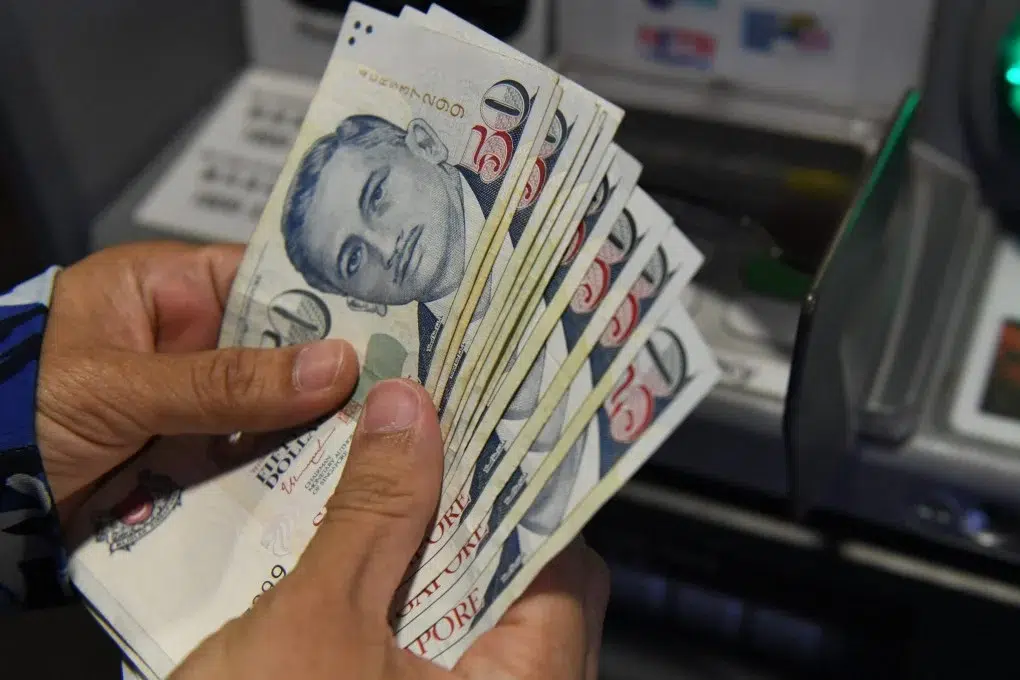
Singapore Dollar is one stable currency that investors think of when they think of diversification. Other Asian currencies worth considering are Thai Baht and Korean Won, which have stronger performance than most in the region.
In addition to diversifying across asset classes, investors should also consider allocating a portion of their cash holdings to stable currencies with a proven track record of strong performance.
To offer just a few examples, the Swiss Franc, Singapore Dollar, Korean Won and Thai Baht have all shown resilience over the years and perhaps can give a measure of stability during economic downturns.
Will a Global Currency Reset Happen?
While the concept of a Global Currency Reset may be intriguing, the evidence suggests that it’s unlikely to occur in the near future.
Rather than getting caught up in speculation and conspiracy theories, investors should focus on building a well-diversified, resilient portfolio that can withstand the ups and downs of the global economy.
Look beyond the hype and invest in the long-term potential of emerging/frontier markets, particularly those in Asia. By doing so, investors can position themselves for success in a rapidly evolving world.
The key to financial success ultimately lies not in chasing after speculative bets, but in developing a long-term strategy that prioritizes diversification, risk management, and a commitment to ongoing learning and adaptation.
And either way, the future almost certainly lies in countries which are in an economic and demographic position to benefit from the global shift in commerce.
FAQs: Global Currency Reset
What is a Global Currency Reset (GCR)?
A Global Currency Reset (GCR) refers to a theoretical restructuring of the global financial system, where major world currencies, such as the US dollar, undergo significant revaluation.
Proponents of this idea argue that a reset could address economic imbalances and create a more level playing field for developing nations. However, this concept remains speculative, and there is little evidence to suggest that such a reset is imminent or likely to happen in the near future.
Why is the US Dollar Dominant in the Global Economy?
The US dollar has been the world’s primary reserve currency for nearly a century due to the United States' economic strength and the dollar’s historical link to the gold standard. Today, over 85% of all foreign exchange transactions involve the US dollar.
Such a dominance allows the United States to issue debt in its own currency, providing it with unique flexibility compared to other nations. Despite challenges, the dollar remains the most widely used and stable currency globally.
Are Economic Doomsday Predictions About the US Dollar Credible?
Economic doomsday predictions about the US dollar have been circulating for decades, but they've consistently failed to materialize.
While crises and recessions are inevitable parts of the economic cycle, the global financial system has withstood numerous shocks, from oil crises to world wars. Historically, leaving USD-denominated assets out of a portfolio has resulted in missed opportunities for returns, further discrediting many of these alarmist predictions.
How Can Investors Prepare for Economic Uncertainty?
The key strategy for navigating economic uncertainty is diversification. Investors should spread their assets across different currencies, regions, and asset classes to mitigate risks.
For example, stable currencies such as the Swiss Franc, Singapore Dollar, Korean Won, and Thai Baht are worth considering for diversification. Additionally, investing in emerging markets, particularly in Asia, offers long-term growth potential while reducing dependence on a single currency or market.
Is a Global Currency Reset Likely to Happen?
While the idea of a Global Currency Reset is intriguing, there is little evidence to suggest it is likely in the near future. Instead of speculating on such an event, investors are advised to focus on building well-diversified, resilient portfolios.

